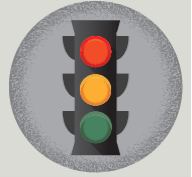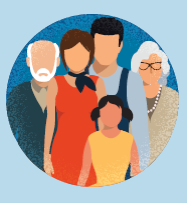ACS Content Test Shows Need to Update Terminology
When was the last time you rode a trolley bus to work? Or called your smartphone a handheld computer? Has it been years, decades or never? These types of questions are why the wording on the Census Bureau’s American Community Survey (ACS) is changing to keep up with the times.
The Census Bureau conducts a content test about every five years to determine if wording and layout of questions should be updated. The ACS is the only source of comparable, quality information about the people in all of our communities. Making the questions clear, easy to understand and relevant are key to improving the response rate and the quality of data.
“In 2016, we tested changes to questions on 10 topics,” said Victoria Velkoff, chief for survey of the American Community Survey Office. “This test is a critical step to make the ACS questions current and easy to answer.”
The content test looked at changes to these subjects:
- Telephone Service
- Computer and Internet Use
- Health Insurance
- Journey to Work
- Weeks Worked
- Class of Worker
- Industry and Occupation
- Retirement Income
- Relationship
- Race and Hispanic Origin
If approved, the Census Bureau will implement these proposed changes in January 2019. See highlights of the testing and outcome for selected topics in the sections below.
Computer and Internet Use

Technology is changing rapidly, both in terms of the devices we use and how we connect to the internet. We are using new words to describe this evolving technology.
“To improve our estimates of the number of Americans using this new technology, we tested several modifications to questions about Computer and Internet Use,” Velkoff said.
Because of the urgent need to update terminology and positive results from cognitive testing, these changes were implemented on the 2016 ACS. Results support this early implementation decision.
- Increased the number of categories for the type of computer question and replaced the term “Handheld Computer” with “Smartphone.”
- Revised the wording of the internet access question to ask about payment (rather than subscription) to a cell phone company in addition to an internet service provider.
- Reduced the number of categories for the internet subscription question by combining DSL, cable mode, and fiber optic and replaced the phrase “Mobile broadband plan” with “Cellular data plan.”
Journey to Work (Commuting)

Changes to the question on commuting were tested to update the terms used to describe how people get to work. Results support implementing this change.
- Wording was updated in several categories:
- The phrase “trolley bus” was dropped.
- The phrase “work at home” was changed to “work from home.”
- “Streetcar or trolley car” was changed to “Light rail, street car, or trolley.”
- “Subway or elevated” was changed to “Subway or Elevated Rail.”
- “Railroad” was changed to “Long-distance train or commuter rail."
- These three rail-related categories were reordered so that the most prevalent rail mode, “Subway or elevated rail,” is listed first.
- Instructions to indicate just one mode of transportation were simplified to clarify how it should be marked: “Mark ONE box for the method of transportation used for most of the distance.”
The time of departure question raised privacy concerns among some respondents because it specifically references the time a person leaves home to go to work. To make this question less intrusive, we removed the word “home” and asked about when a person leaves for work. Results support implementing this change.
Retirement Income

Adding a new instruction to help people better understand the types of income to include when answering the question about retirement, survivor or disability pensions was tested and results support implementing the change. The instruction states that income from “a previous employer or union, or any regular withdrawals or distributions from IRA, Roth IRA, 401(k), 403(b) or other accounts specifically designed for retirement” should be included.
Relationship

To reduce errors in reports of same-sex and opposite-sex coupled households, revising the question about the relationship of each household member to the “householder” was tested and results support a change.
- The “Husband or wife” and “Unmarried partner” categories were expanded to distinguish between opposite-sex and same-sex relationships.
- Unmarried partner was moved to the top of the list, immediately following spouse.
- Adding an automated check in electronic modes to ask respondents to verify responses when there are inconsistencies between sex and relationship. For example, if John and Mary are both reported as “Male” and their relationship is “Opposite-sex married couple,” the check asks the person filling out the survey to verify that the responses to both questions are correct.
“It is important that the ACS keep pace with how the country is changing,” Velkoff said.
For full details about the test, images of the questions tested, and results, please read the full report published for each topic.
Subscribe
Our email newsletter is sent out on the day we publish a story. Get an alert directly in your inbox to read, share and blog about our newest stories.
Contact our Public Information Office for media inquiries or interviews.
More stories
-
EmploymentFrom Great Resignation to Great ReshufflingNewly released Census Bureau data show how workers changed jobs across industries during and after the pandemic.
-
PopulationWho Commuted on Baltimore’s Key Bridge?Francis Scott Key Bridge commuters had long, early commutes and were concentrated in specific earnings and occupational categories.
-
Income and PovertyFresh Insights on Income Mobility From 2005 to 2019Mobility, Opportunity, and Volatility Statistics (MOVS) project shows income dynamics of working-age adults across socio-economic and geographic groups.
-
Business and EconomySmall Business Week 2024: How Small Businesses Impact Our EconomyThe 61st Annual Small Business Week theme is “Building on the Small Business Boom.”






